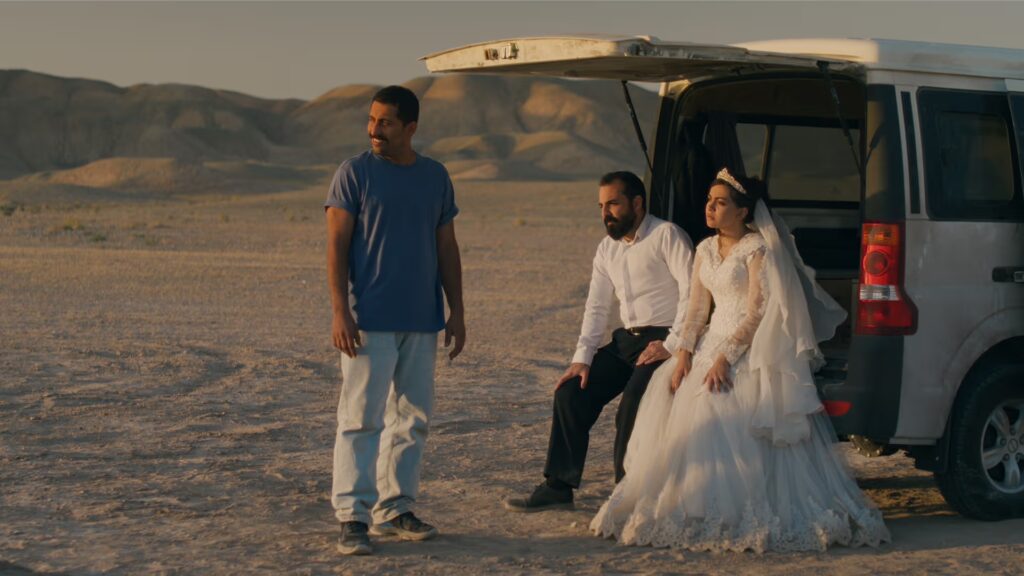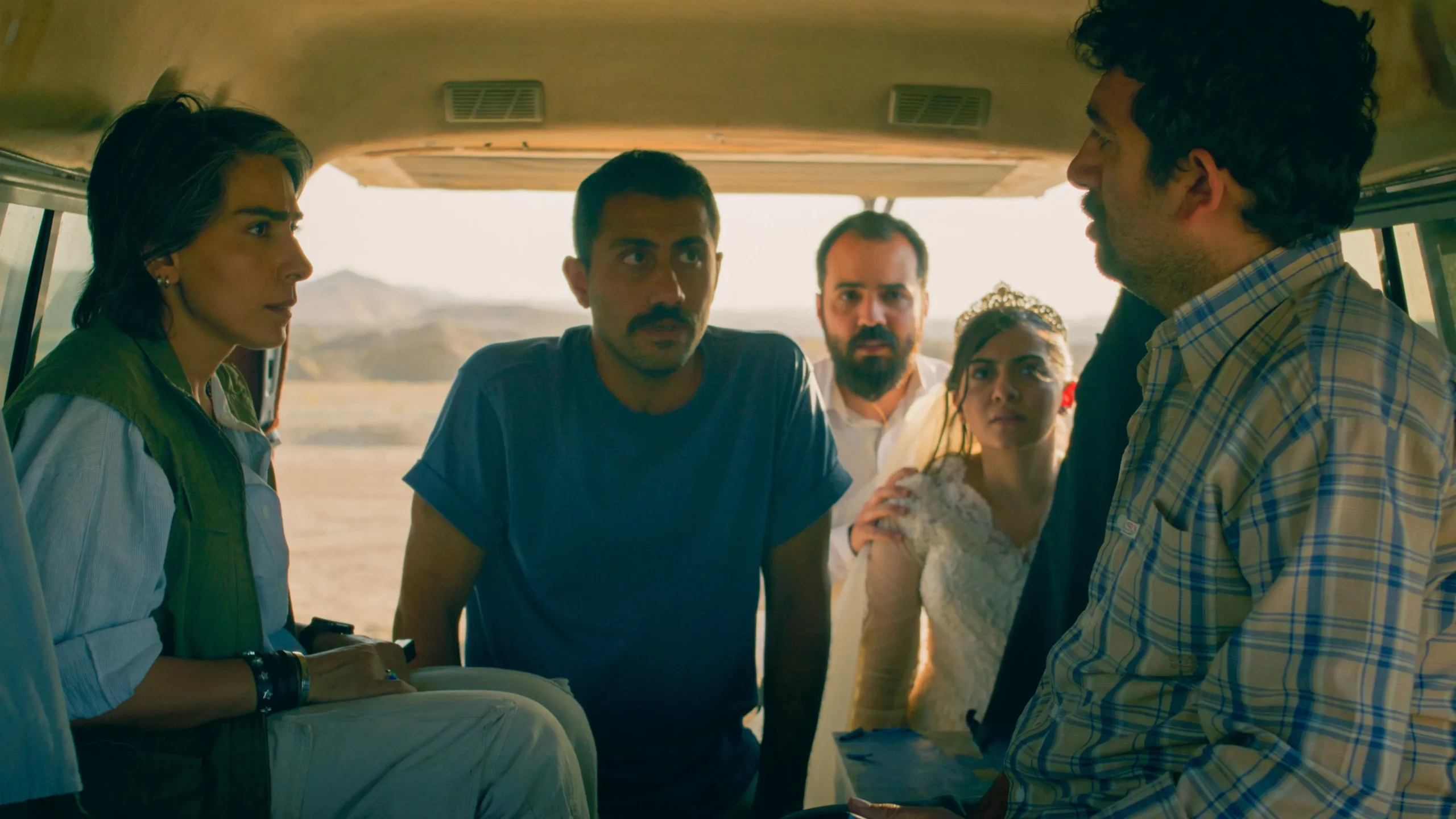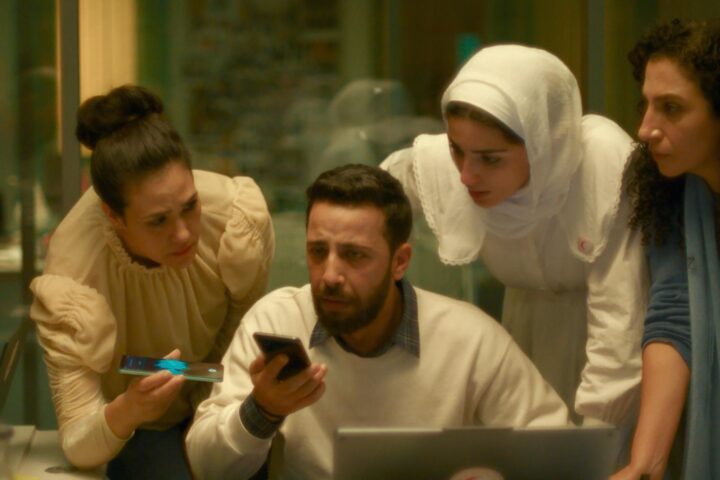Jafar Panahi’s It Was Just An Accident, winner of this year’s Palme d’Or at the Cannes Film Festival, finds the persecuted Iranian sociopolitical essayist back in strong form after No Bears landed him in back jail in 2022. Forbidden to make films in Iran, Panahi had faced a long sentence and went on a hunger strike that ultimately led to his release. Such is the life of an Iranian filmmaker who chooses to make work critical of the regime, and Panahi’s offsceen story is nearly identical to that of his fellow countryman Mohammad Rasoulof, whose The Seed of the Sacred Fig last year forced the also formerly imprisoned filmmaker into exile in Germany. Theirs are astonishing stories of dissident artists whose repeated arrests become like honor badges—every time they are banned from creating, their art still finds a way.
Like Rasolouf’s The Seed of the Sacred Fig, Panahi’s new film was made entirely in secret, shot in Iran after his 2022 prison release. It is moviemaking as an excoriating cry for justice, telling the story of an unlikely group of former political prisoners who, over the course of a single day, decide what to do with the torturer one of them has (maybe) managed to capture. Some scars never heal, and their wounds are quick to reopen—and Panahi’s high stakes film, fired by philosophical questions about the cost of revenge, becomes a moral-dilemma drama in the form of a ticking-clock thriller. It’s the sort of experience that’s gripping when projected onscreen, but that at the same time is writ-large in the real world; watching the film we are always aware that suspension of disbelief is not an option.
Panahi opens his picture with jolting tension: a husband, wife, and young daughter driving a nighttime road accidentally strike and kill a dog. Watch closely for the husband’s reaction, and how, in the next scene, he pulls over at a small mechanic outpost seeking repairs. Working there is Vahid (Vahid Mobasseri), who, after hearing the man’s voice—and the sound of his wooden leg knocking on the floor—is hit with a sense memory that this man, Eghbal (Ebrahim Azizi), was his torturer (nicknamed “peg leg”) during his imprisonment years earlier, which cost him his wife, livelihood and reputation.
Seeking vengeance, Vahid trails his suspect the next day and kidnaps him in broad daylight, stuffing him into the back of a van and driving into the desert for a live burial. But after Eghbal’s pleading denials, Vahid starts to doubt himself—what if this isn’t the culprit after all? Could he be wrong? To steady his nerves, he puts the unconscious Eghbal into a casket-like wooden box and goes to find photographer Shiva (the richly pensive Mariam Afshari), in the middle of a wedding photo shoot with bride-to-be Golrok (Hades Pakbaten). Both Shiva and Golrok have a deeper history, each also having survived torture by the hand of “peg leg”—news that comes as a shock to Golrok’s groom, Ali (Majid Panahi). Soon the group is piled into the back of Vahid’s van with their likely former imprisoner, torn about what should happen next. Should they bury him in the desert? No one seems fully able to positively identify him, but hair-trigger fellow survivor Hamid (Mohamad Ali Elyasmehr), who has an on-again, off-again relationship with Shiva, insists on swift execution. The others are not so sure.

At least as engrossing as the central predicament is Panahi’s portrait of the walking dead in modern Iran: former ordinary citizens (not revolutionaries) wrongly imprisoned and brutally violated who, years later, have tried to go on with their lives but will never be the same after government persecution left them broken shells of who they were. All have lost families, and most still cry in pain at what was done to them, whether forced to fondle their abuser’s mangled flesh, sexually exploited or under the constant threat of death. Panahi orchestrates all of this with rising force, slowly revealing his survivors’ details until the film becomes almost less concerned with what the former prisoners might do and more focused on the fragile stasis in which survivors learn to live. Will revenge heal them? Should they consider that their persecutor might be more complicated than the monster they’ve always known? Will they become torturers themselves—and can they live with that? Why are they now at odds with each other? Is their former captor still tormenting them?
Amid this heavy ideological clash, Eghbal’s family faces a crisis, and how the group responds signals what will come in the film’s final moments, which arrive as expected yet lose none of their impact. In a movie that nods to Samuel Beckett in its time-biding structure and stalemate of a dilemma, Panahi stages a wounding final stretch built around an extended, painful moment of truth-telling—which may resolve the question at hand but frees no one. It is performed with such raw precision by the fantastic Afshari that she deserves serious awards attention this season.
Panahi, like Rasoulof, applies a forensic eye to his modern Iranian political critique, using a classic dramatic set-up to ratchet tension in the cold light of day—here, a city locked between past and present, fundamentalism and modernity (a woman about to give birth is nearly refused care because her husband isn’t present), and a society collapsing in the streets. In The Seed of the Sacred Fig, it was the Women-Life-Freedom protest movement that led to youth imprisonment and death sentences, and in It Was Just An Accident, the idea of payback for former incarceration may doom its architects to a different sort of prison. Panahi is too smart to give the audience the visceral payoff it craves, ending instead on a note that reinforces how revenge can never return what was taken. What, then, are Panahi’s characters to do with a harm that can never be undone?
Recommended.
3 stars



